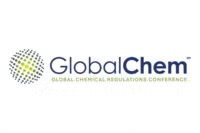WASHINGTON (January 17, 2023) — The American Chemistry Council (ACC) today released a new “9 in 9 Challenge” challenging Congress and the Environmental Protection Agency (EPA) to revise nine key regulatory policies threatening U.S. chemical management within the first nine months of 2023.
The 9 in 9 Challenge: 9 Actions in 9 Months for Congress and the Environmental Protection Agency (EPA) to Deliver Sound Chemical Management Policy in 2023 spotlights nine regulatory challenges weakening U.S. chemicals management and the solutions to correct these problems before October 2023.
ACC is calling for EPA officials to identify and resolve nine regulatory obstacles preventing EPA from fully implementing the 2016 amendments to the Toxic Substances Control Act (TSCA). Furthermore, ACC’s challenge calls for the 118th Congress to exercise its oversight authority and demand EPA to explain to lawmakers why the TSCA program continues to fail at achieving its statutory objectives and deadlines.
Over the last two years, the TSCA program has been plagued by constant delays and a lack of transparency in how resources are being deployed. From risk management rulemakings to data reporting, workplace exposure assessments and challenges with meeting statutory deadlines in the New Chemicals program problems with TSCA implementation continue to persist. Six years since the bipartisan Lautenberg Amendments became law, the TSCA program remains in need of repair.
In 2022, ACC continuously called on EPA to implement the amendments to TSCA in a cost effective, transparent and reliable manner. ACC released its inaugural State of TSCA Report in May identifying 6 key TSCA challenges and offering solutions to these resolve ongoing concerns. Five months later, ACC followed up with our State of TSCA Progress Report grading EPA on its progress in correcting these issues.
Some of the chemical management policy recommendations highlighted in ACC’s 2023 “9 in 9” challenge to Congress and EPA include:
- Fulfilling TSCA’s statutory obligations and meeting program deadlines.
- Demonstrating responsible fiscal management and substantiating TSCA fee increases.
- Requiring real-world data in risk evaluations.
- Making chemical safety determinations for each condition of use.
- Incorporating existing workplace safety guidelines in occupational risk determinations.
- Accelerating the pace and timeliness of New Chemical reviews.
- Improving transparency and objectivity in peer review.
“2023 is the year for EPA to put forth a comprehensive, forward-thinking proposal to correct these shortcomings and show that the TSCA program is capable of accomplishing what the 2016 bipartisan compromise intended,” said Ross Eisenberg, ACC vice president, federal affairs. “We believe the Agency can meet these goals and we want it to succeed. If EPA is unable to properly address TSCA’s difficulties on its own, then EPA officials must explain the TSCA program’s poor performance in front of appropriate Congressional committees.”
For a deeper dive into TSCA and chemicals management policies, visit ACC’s TSCA webpage.



